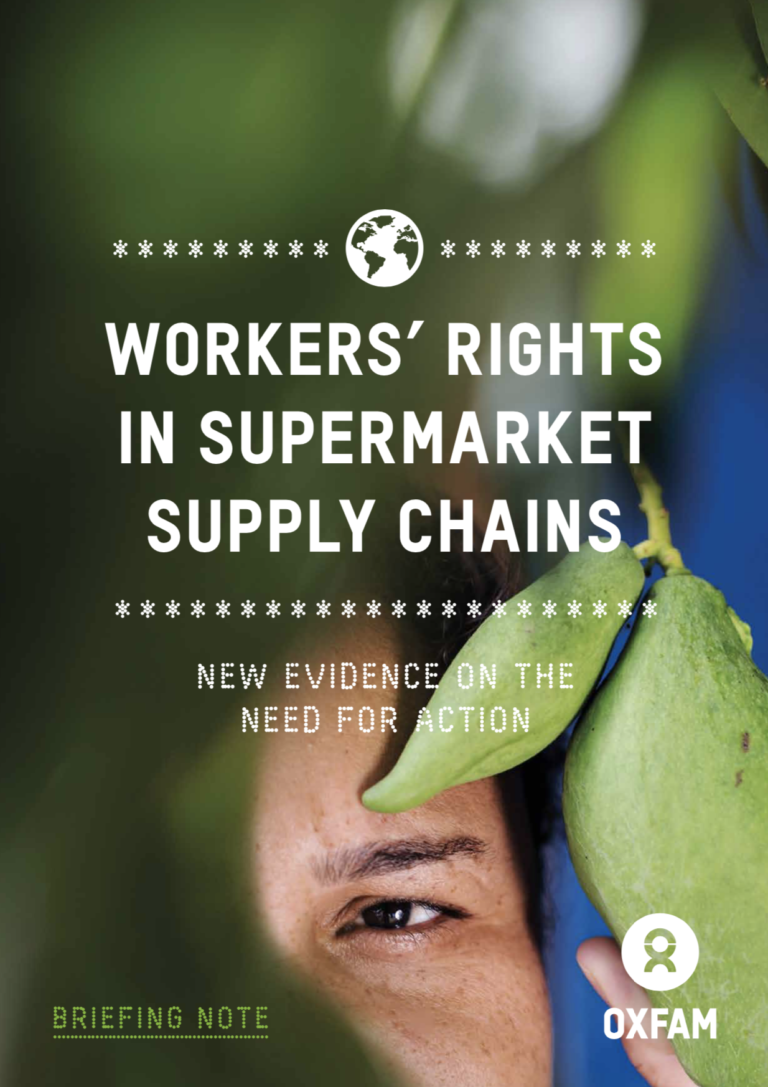This Oxfam briefing note presents compelling new evidence that our food supply chains are rife with violations of human, labour and women’s rights.
The paper summarizes new research commissioned by Oxfam, which shows the depth and scale of human suffering in food production in India and Brazil among workers linked to international supermarket supply chains.
The briefing note identifies company laggards on workers’ rights, makes clear that progress is possible and where it is being made, and puts forward a framework for action with important steps for supermarkets to take to end human suffering in their supply chains.

